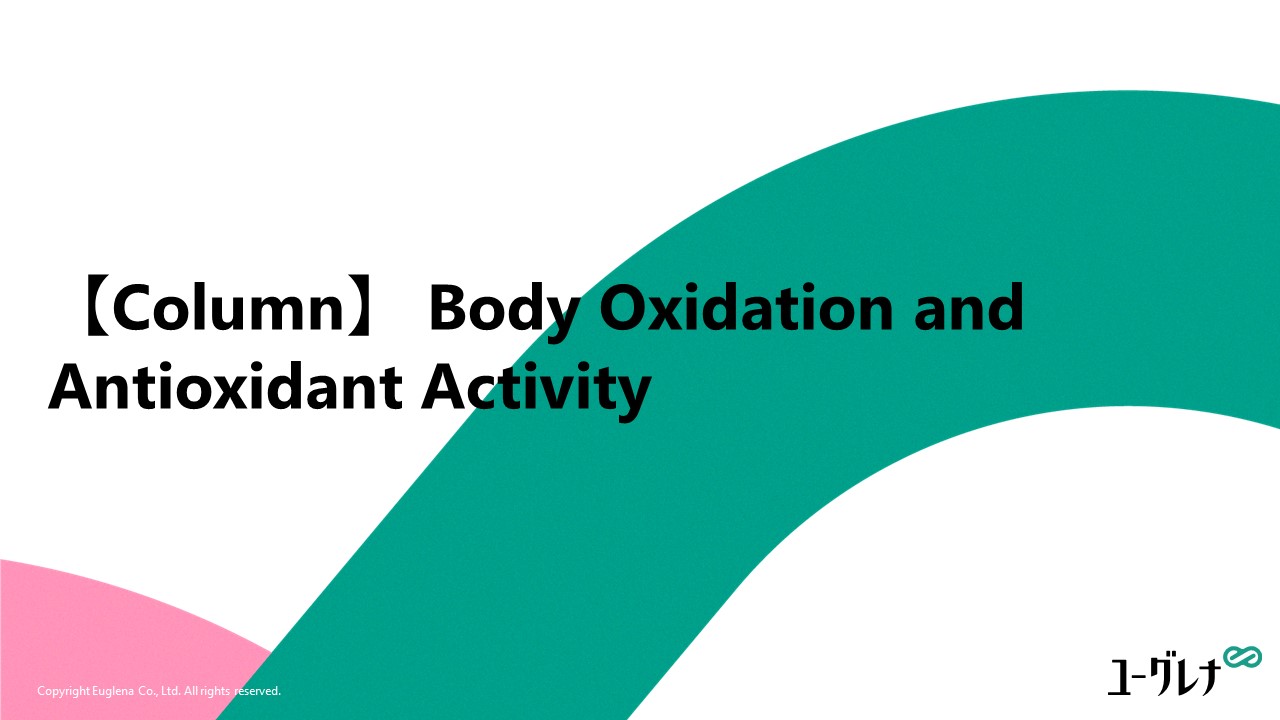
【Column】 Body Oxidation and Antioxidant Activity
When you pick up health-related products like dietary supplements or cosmetics, do you pay attention to their "antioxidant activity"? Even if you do, many of you might not be familiar with its exact meaning.
Today, we'll provide a brief explanation of bodily oxidation and the role of antioxidant activity. As you may already know, living organisms, including humans, need to breathe to survive. But have you ever wondered why we need to breathe in the first place? If you thought, "To take in oxygen," you're absolutely correct.
The human body is constructed through a multitude of oxidation-reduction reactions. Whether it's extracting energy from food or building the body's tissues based on nutrients, all of these processes involve oxidation-reduction reactions. Simply put, oxidation-reduction reactions involve the transfer of electrons between substances. The ultimate destination for the electrons shuttling back and forth through these reactions is the oxygen we breathe in through respiration.
In this way, oxygen plays the role of the "final electron acceptor" within our bodies.
Now, when oxygen and electrons meet, they eventually form water. However, in the process, they generate highly reactive oxygen species known as "reactive oxygen species" or ROS for short. ROS serve as part of our immune system, but when produced excessively, they can be harmful to the body. Excessive ROS production is associated with various negative effects, such as accelerating aging, promoting cell mutations leading to cancer, and contributing to lifestyle-related diseases like obesity and diabetes. This state where there's an excessive amount of harmful ROS in the body is what we refer to as "oxidative stress. The level of ROS in your body is closely related to your daily life.
For instance, irregular eating habits, excessive physical stress, alcohol consumption, smoking, and exposure to UV or radiation have all been reported to increase ROS levels in the body.
Conversely, taking actions can help reduce the increased ROS. This is where substances with "antioxidant activity" come into play, which can be introduced into the body through food and other means to mitigate the effects of oxidative stress. Representative antioxidants include vitamin E (tocopherol), polyphenols, carotenoids, and more. These antioxidants not only synthesized within the body but can also be introduced through conscious dietary choices. By incorporating foods rich in these antioxidants into your diet, you can effectively eliminate excess ROS that may have been generated.
To maintain both beauty and health and lead a vibrant life, it's crucial to keep your body's oxidative risk low.
Even if you find it challenging to obtain these antioxidants through your regular meals, consider starting with supplements or other products to take care of your body's oxidative balance.
